Page Not Found
Page not found. Your pixels are in another canvas.
A list of all the posts and pages found on the site. For you robots out there is an XML version available for digesting as well.
Page not found. Your pixels are in another canvas.
This is a page not in th emain menu
Research
Published:

Published:

Published:
The 20th of March 2022 is census day in Scotland. This census year is of particular importance to the LGBTQ+ community. Here I provide some information for LGBTQ+ people filling in the census. As a non-binary person, I’m disappointed by the binary sex question. However, that makes the optional text box in the “trans status or trans history” question more important. If your trans and feel comfortable doing so please make use of that box so our community is represented accurately.
Published:
On the 22nd of September, the Scottish Government’s Sex & Gender Data Working Group published guidance on the production & publication of sex, gender and trans status(gender modality) data by public bodies. The guidance is updated from the daft guidance, which the working group took feedback on in December. Here I will highlight key strengths and weaknesses of the new guidance as well as questions it leaves unanswered.
Published:
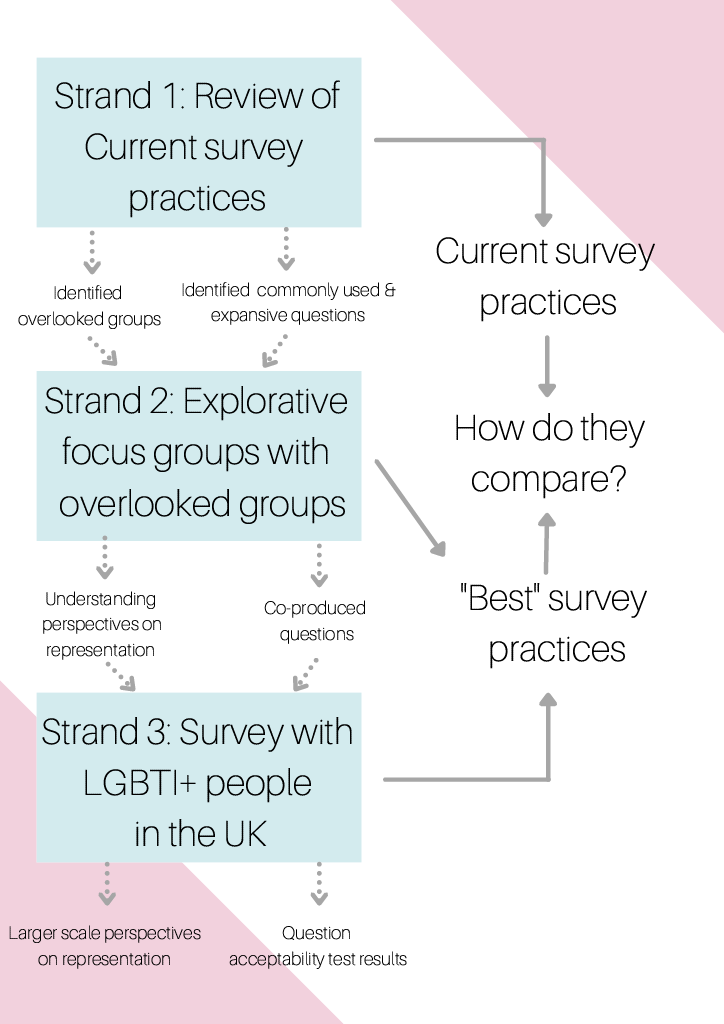
Survey Link! Ends on July 2nd 2021
The third and final strand of my research has begun and I need your help. My research aims to find out how differences of sex, gender and sexuality should be represented in UK population surveys. For the final strand of my research, I am surveying people ages 16 and over who live in the UK and are part of the LGBTI+ community. The survey asks for your perspectives on what information about your sex, gender or sexuality should be recorded. It features questions designed by people whose relationship to sex, gender or sexuality is usually overlooked by UK censuses. You will have the opportunity to share your perspectives on these questions and help identify if they would be good alternatives to current survey practices.
The above diagram depicts my research process. The survey is part of Strand 3. In Strand 2 I engaged with 4 different overlooked groups that were identified by reviewing current survey practices they were:
People with variations of sex characteristics (often referred to as intersex people or people with differences of sex development)
People whose gender identities (or lack thereof) are not completely represented by the categories of man or woman (often referred to as non-binary people)
People who do not identify with their sex assigned at birth (often referred to as trans people)
Anyone who does not identify as only heterosexual/straight, gay, lesbian or bisexual (for example: asexual, aromantic, queer, pansexual and polyamorous people)
In Strand 3’s survey I want to continue to engage with these groups while also talking to the wider LGBTI+ community. This is due to the fact that although lesbian, gay and bisexual people are occasionally represented in population surveys if there is no sexuality question, they are not the assumed norm unlike straight people. The purpose of the survey is to see if the perspectives shared by the Strand 2 focus group participants are held by a larger group. It also gives the opportunity to test the “ideal” questions designed by the focus group participants.
The survey will be used to construct an idea of best survey practise for representing differences of sex, gender and sexuality in the UK. I will then compare that to what is currently done to produce recommendations on how to improve upon our current approaches to asking about sex, gender and sexuality. The overall objective of this research is to further respectful representation of marginalised groups in an attempt to produce data that will help us understand our communities and meet our needs.
Published:
The following is a 5 minute zine I made in October. It touches on some ways I have personally been overlooked or misrepresented by surveys. These issues formed one of the key motivations for my research. I have often been overlooked by surveys or forced into ill-fitting boxes. I hope that my research can identify ways to prevent this happening for myself and everyone else who has ever been overlooked by survey designers. This zine and my research focuses on sex, gender and sexuality. However, poor question design is an issue for a range of characteristics.
Published:
In 2019 the Scottish Government asked the Chief Statistician to convene a Working Group to explore the collection, disaggregation and use of data on sex and gender. In December, the Working Group published draft guidance for public bodies on the collection of sex and gender data. The guidance seeks to standardise a diversity of data collection approaches in Scotland and is generally strong in terms of iterating that researchers should ask questions that will return the data they require and ensuring practices are inclusive to maximise the number of people who can participate in data collection activities.
The working group is accepting feedback on the guidance until the 12th of February. I would strongly encourage anyone with quantitative data expertise, particularly that relating to sex, gender and sexuality demographics, provide feedback to the working group.
I co-produced the following letter with Dr Kevin Guyan, which outlines our views on the strengths and weaknesses of the Working Group’s draft guidance:
Published:
The 21st of March 2021 is census day in England, Wales and Northern Ireland. This census year is of particular importance to the LGBTQ+ community. Here I provide some information for LGBTQ+ people filling in the census. As a non-binary person, I’m disappointed by the use of a binary sex question. However, that makes the optional text box in the “sex registered at birth” question more important. If your trans and/or non-binary please make use of that box so our community is represented accurately.
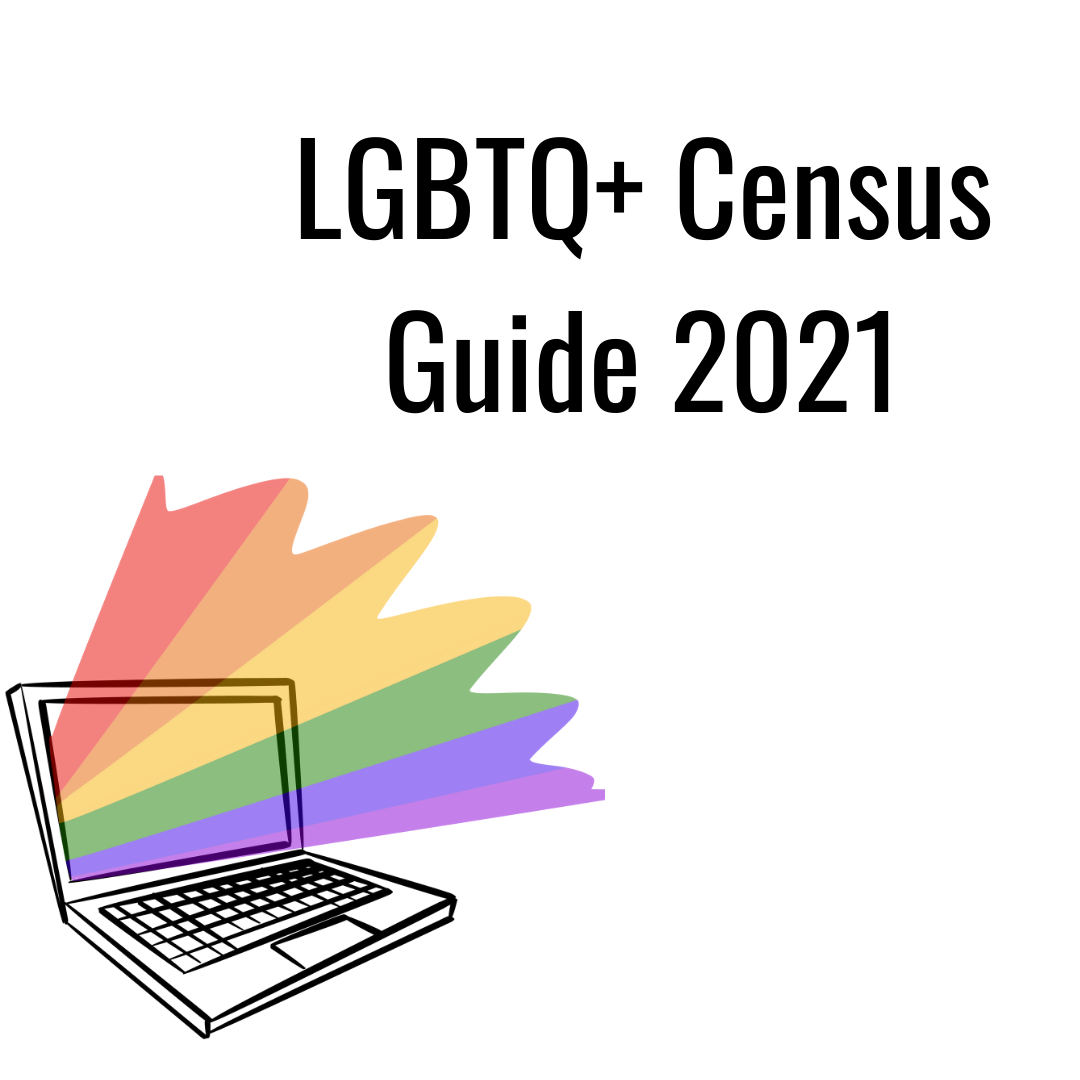
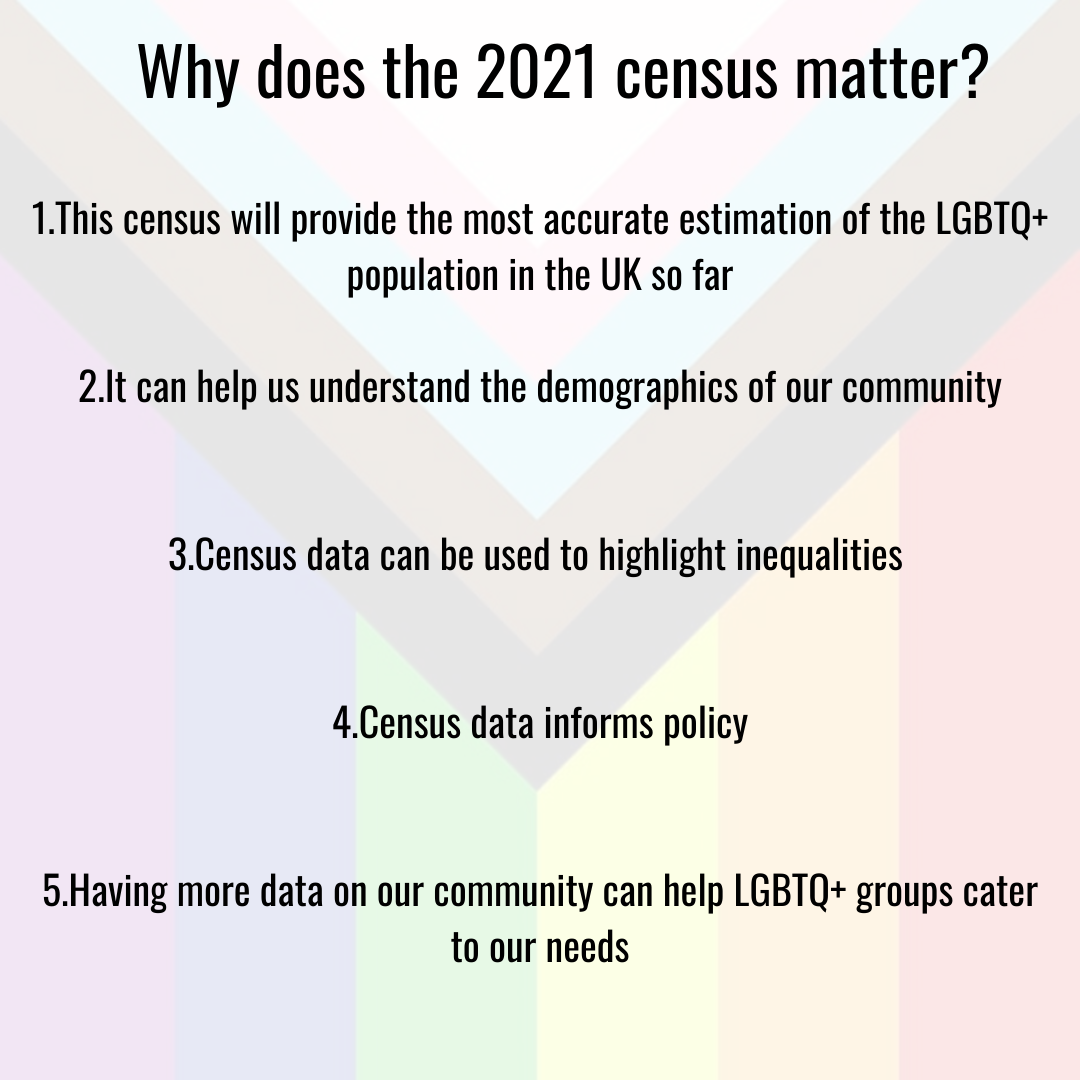
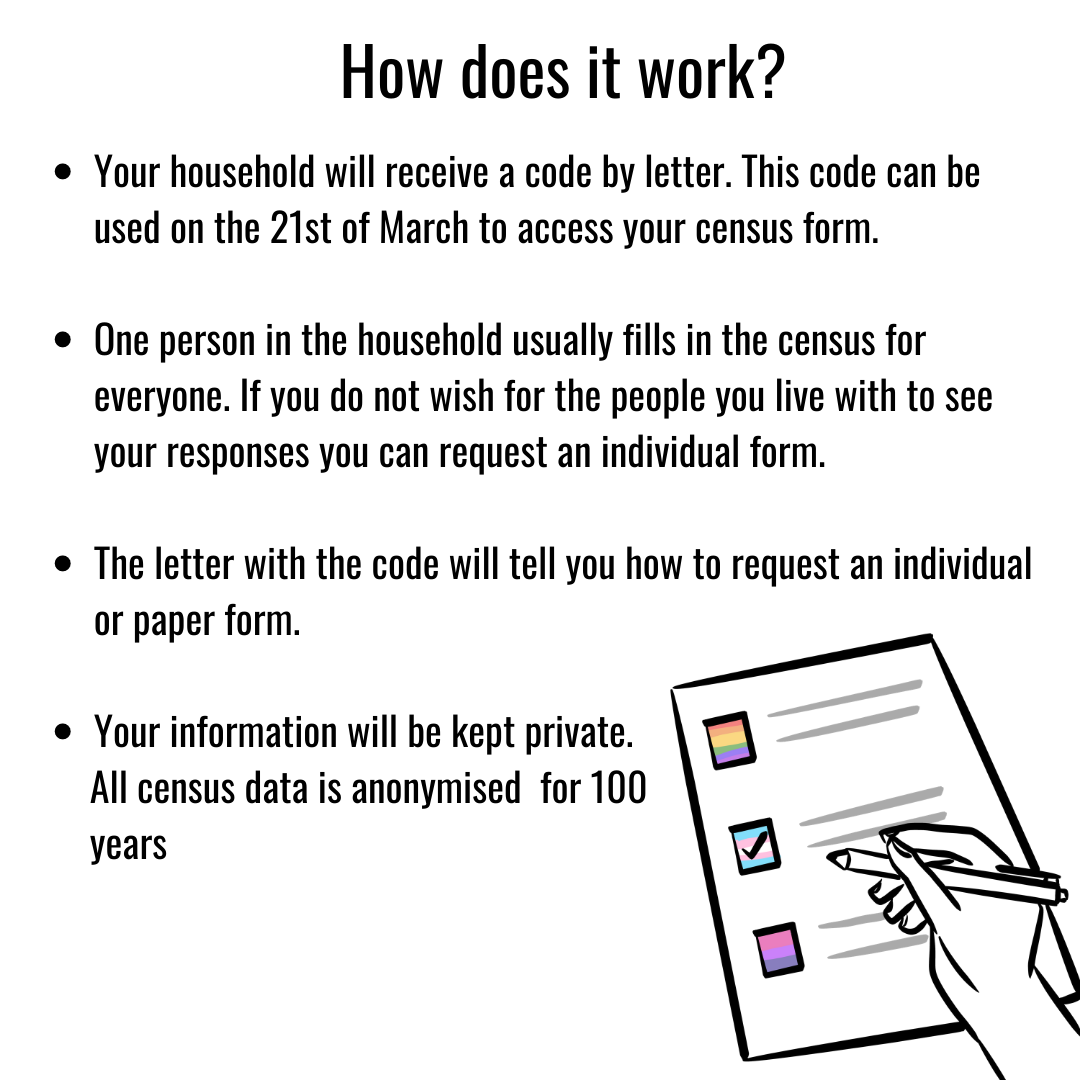
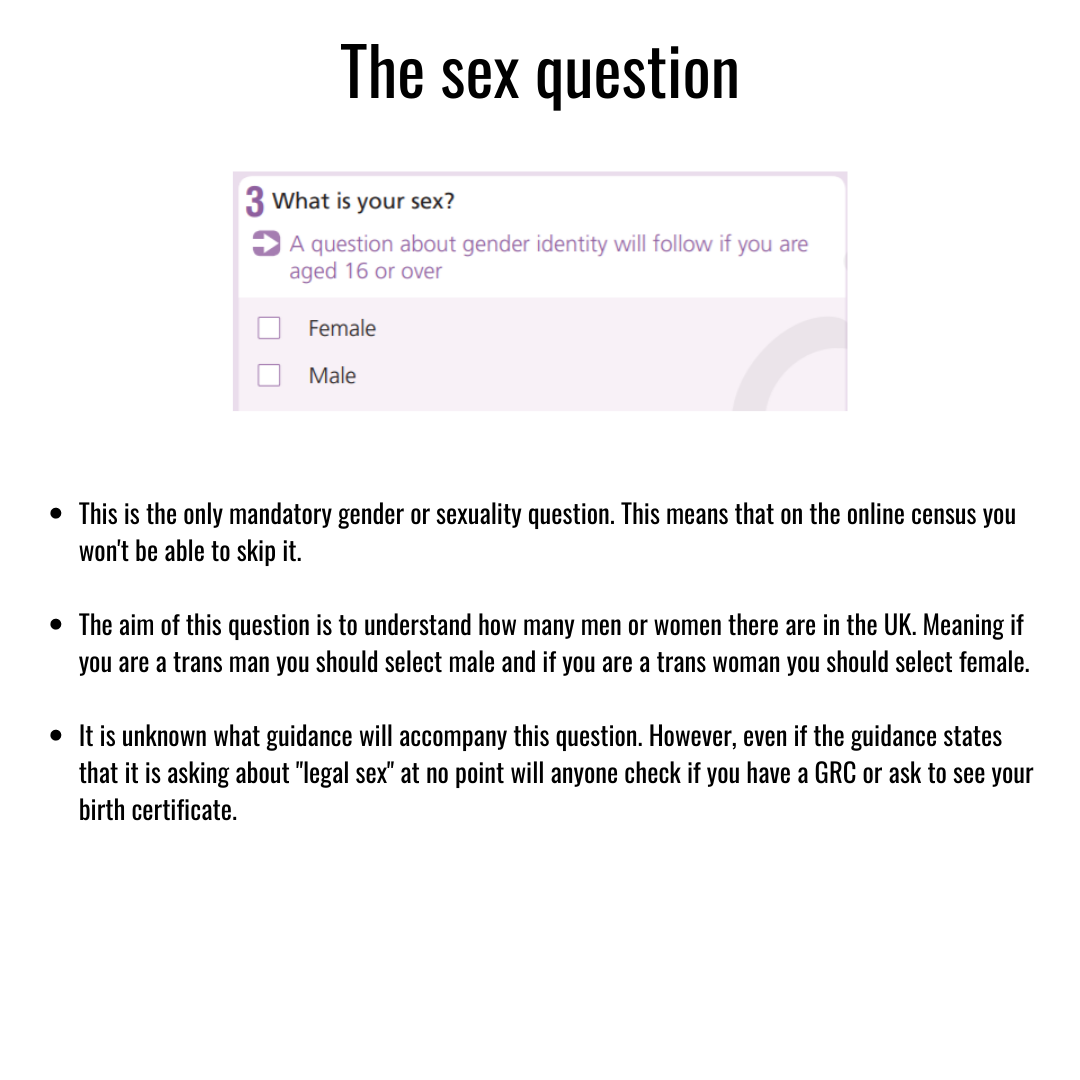
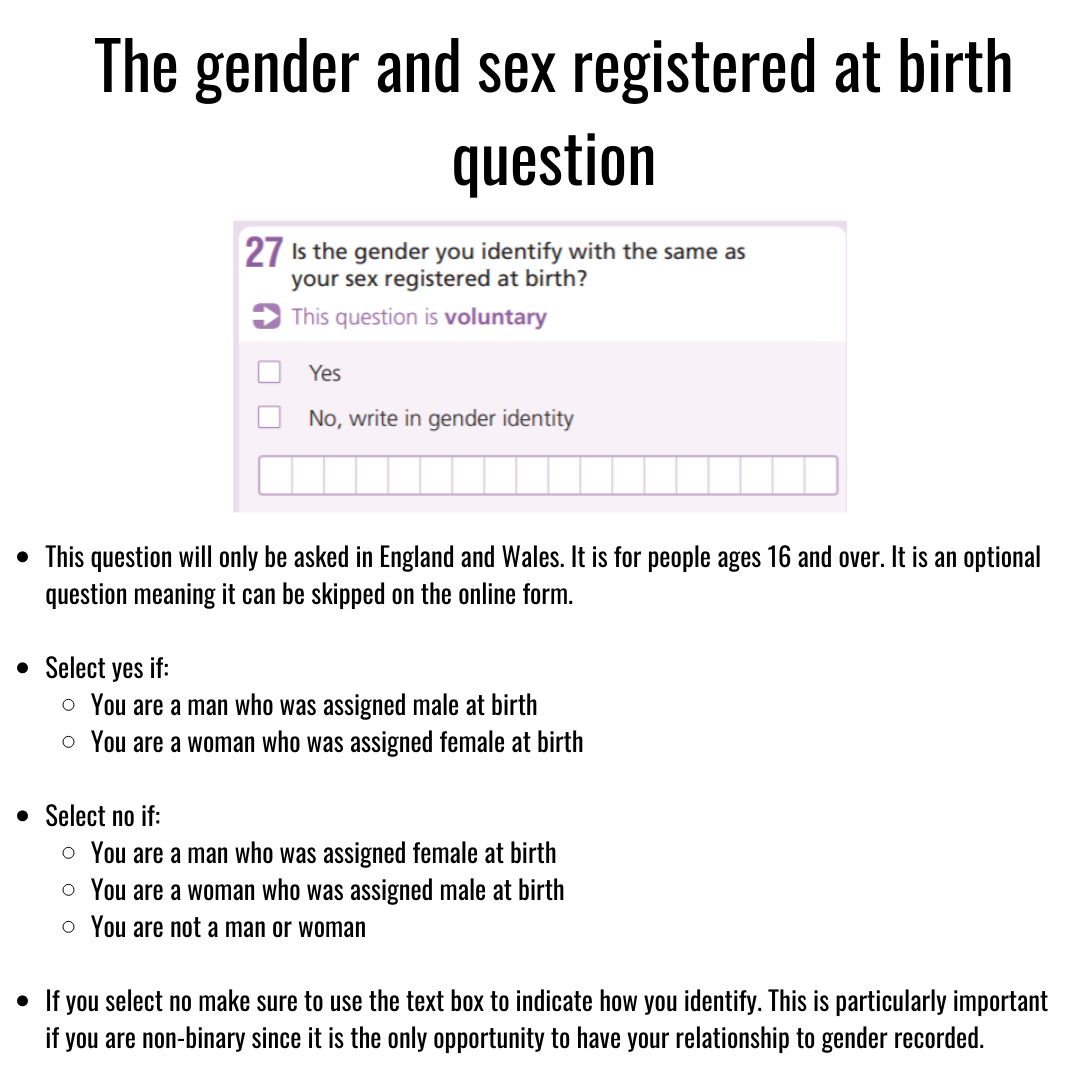
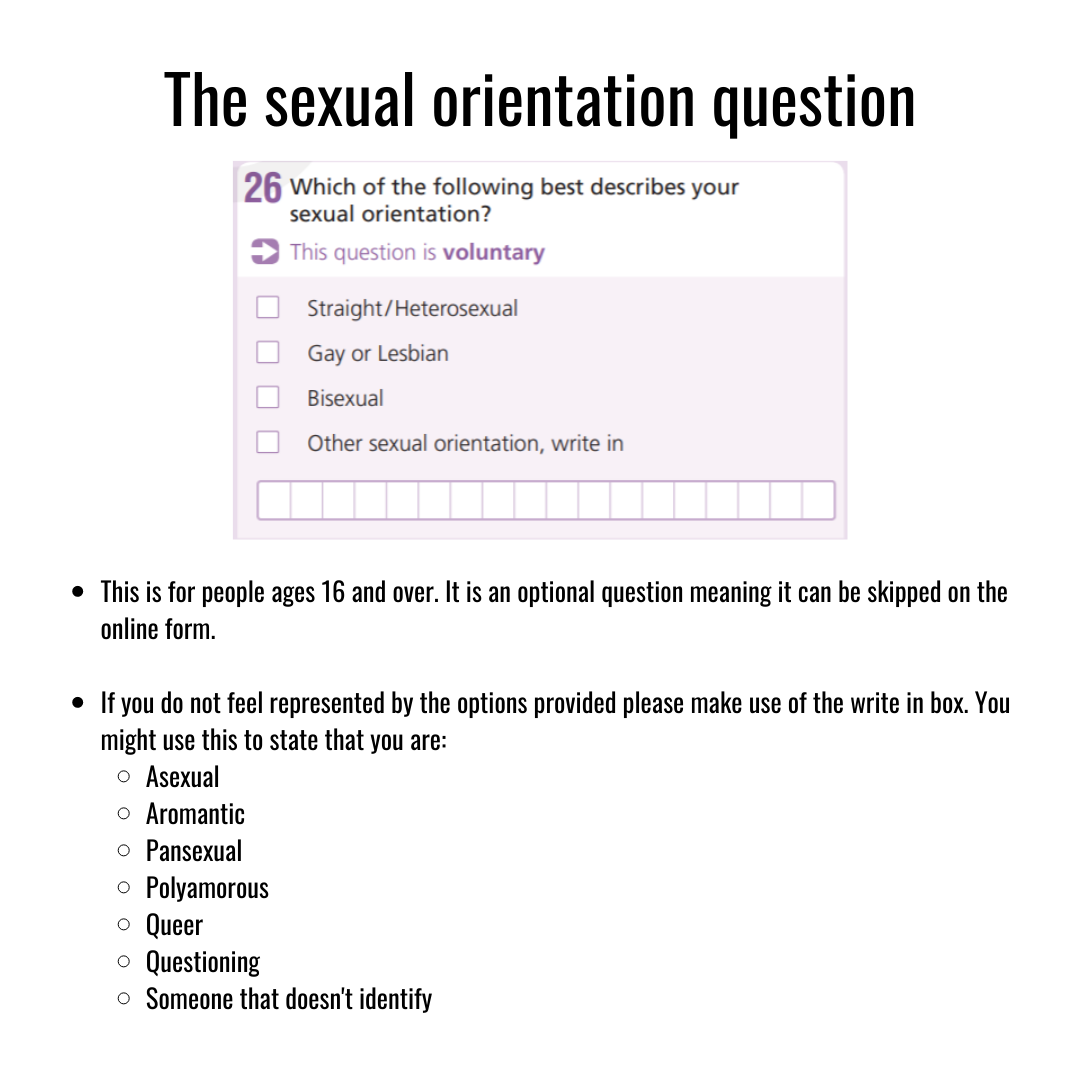
Short description of portfolio item number 1
Short description of portfolio item number 2 
Published in Journal 1, 2009
This paper is about the number 1. The number 2 is left for future work.
Recommended citation: Your Name, You. (2009). "Paper Title Number 1." Journal 1. 1(1). http://academicpages.github.io/files/paper1.pdf
Published in Journal 1, 2010
This paper is about the number 2. The number 3 is left for future work.
Recommended citation: Your Name, You. (2010). "Paper Title Number 2." Journal 1. 1(2). http://academicpages.github.io/files/paper2.pdf
Published in Journal 1, 2015
This paper is about the number 3. The number 4 is left for future work.
Recommended citation: Your Name, You. (2015). "Paper Title Number 3." Journal 1. 1(3). http://academicpages.github.io/files/paper3.pdf
Published:
This is a description of your talk, which is a markdown files that can be all markdown-ified like any other post. Yay markdown!
Published:
This is a description of your tutorial, note the different field in type. This is a markdown files that can be all markdown-ified like any other post. Yay markdown!
Published:
This is a description of your talk, which is a markdown files that can be all markdown-ified like any other post. Yay markdown!
Published:
This is a description of your conference proceedings talk, note the different field in type. You can put anything in this field.
Undergraduate course, University 1, Department, 2014
This is a description of a teaching experience. You can use markdown like any other post.
Workshop, University 1, Department, 2015
This is a description of a teaching experience. You can use markdown like any other post.